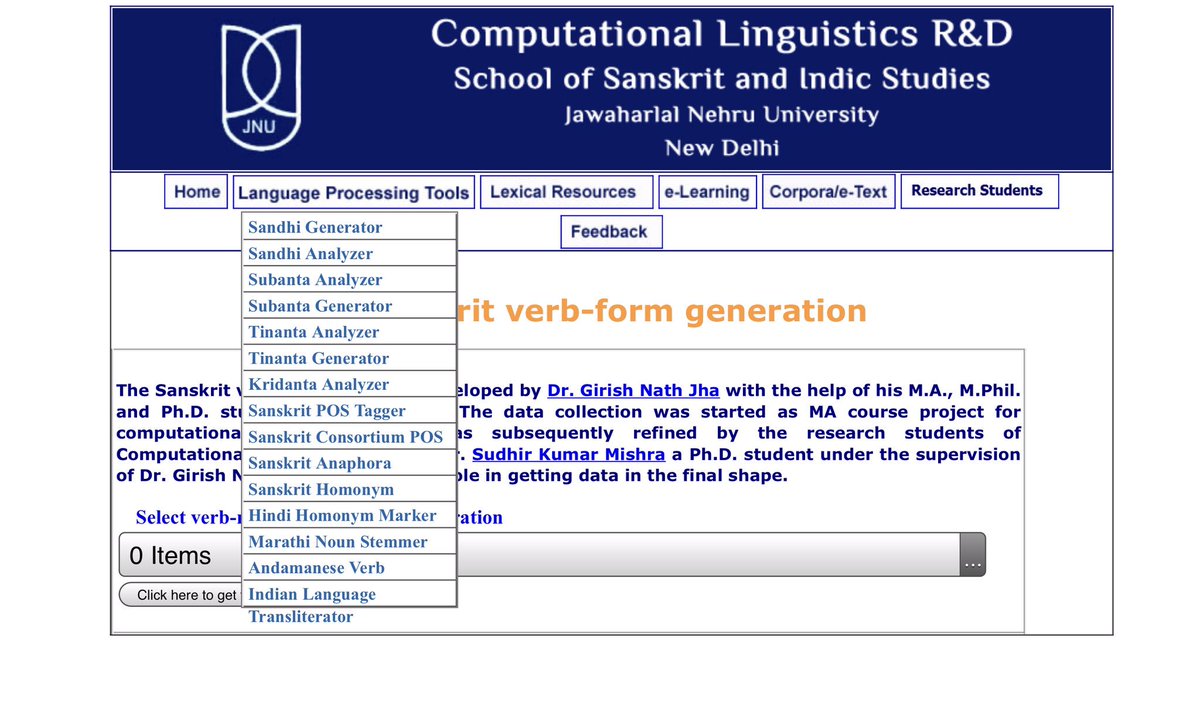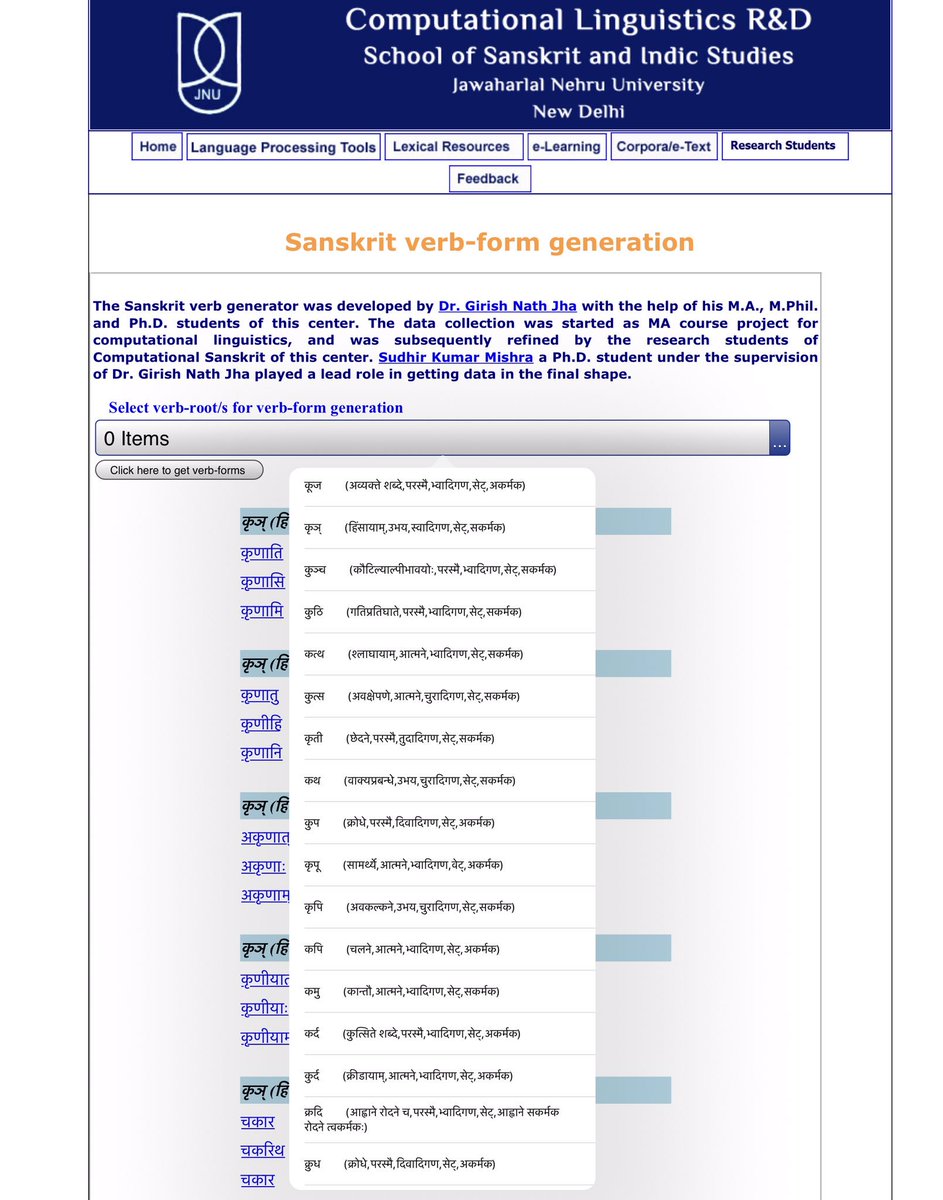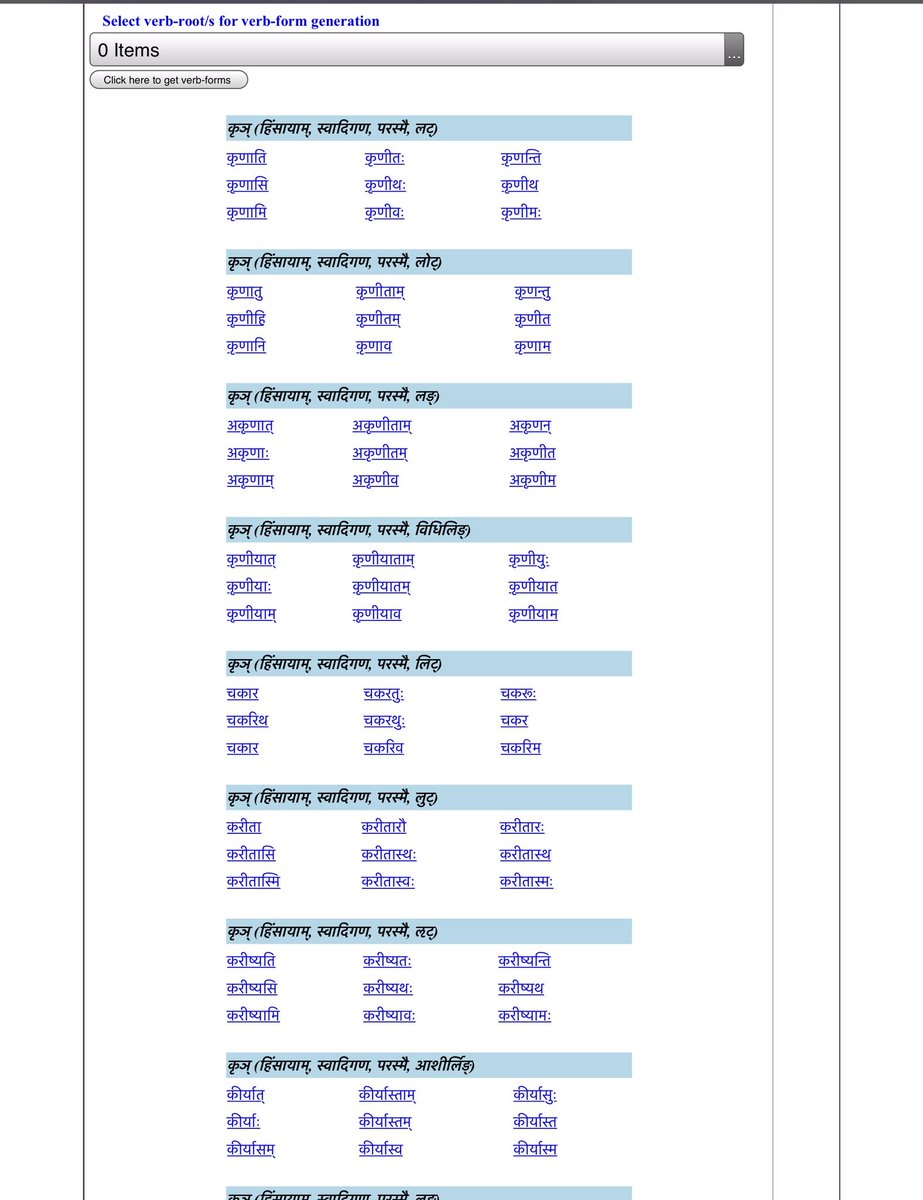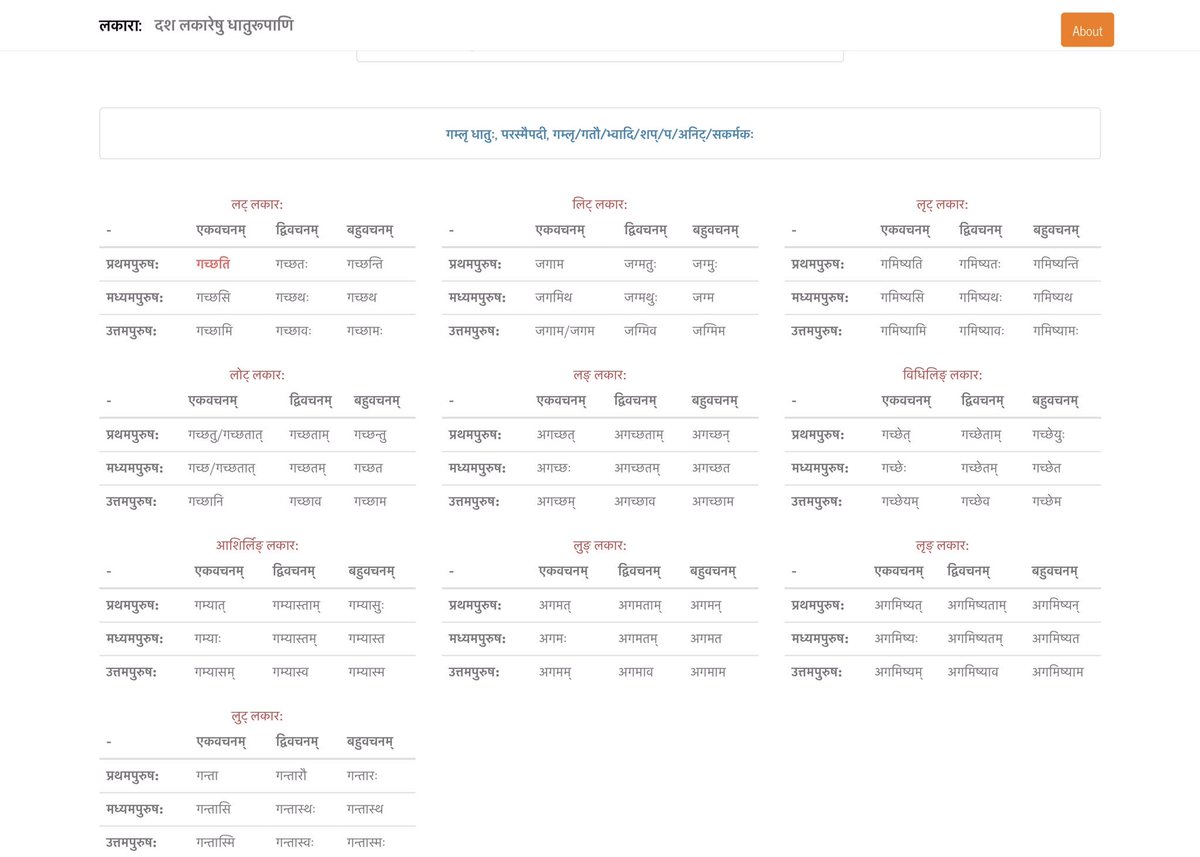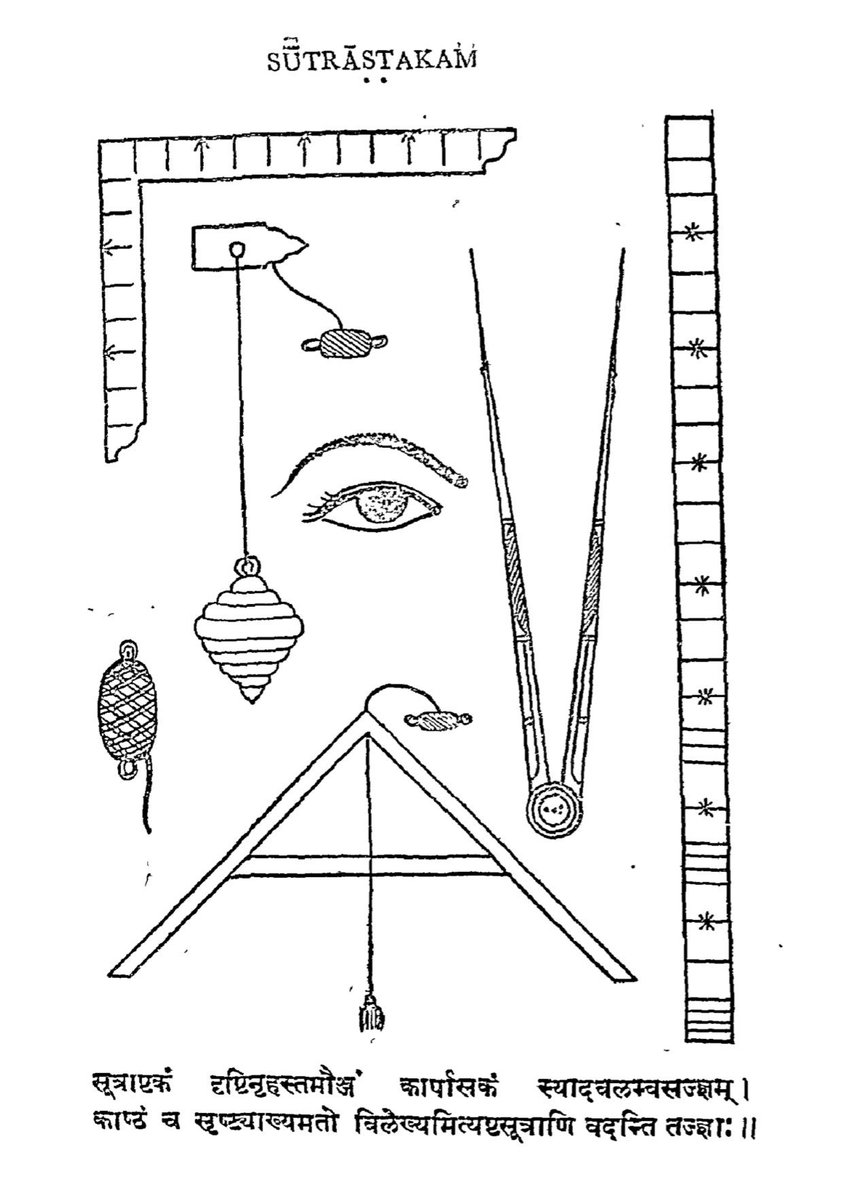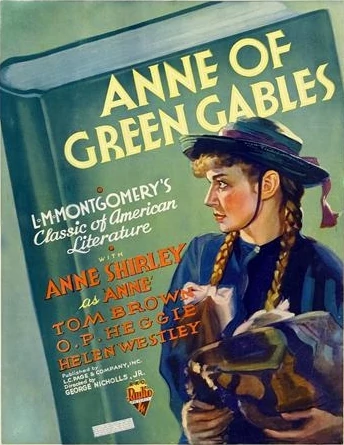For a beginner, Lakaras can be utterly confusing. Ask me!
Unless you are a lucky beginner, you go through months of ‘लकार’ confusion till it all slowly clears up. Then you wonder-‘what was that all about’?
But it needn’t be so..
I strongly recommend listening to the entire lecture multiple times!
But for those who want to sample it, here goes...
Since all these names start with ‘L’ (लकार) - they are called Lakara - obviously a naming convention !
Lat, Lit, Lut, Lrt, Lot, Let & Lang, Ling, Lung, Lrng LAKARAs
लट् । लिट् । लुट् । लृट् । लोट् । लेट् & लङ् । लिङ् । लुङ् । लृङ् लकाराः।
कालवाचकाः - Time based operations (tense)
भाववाचकाः - ‘Sentiment’ based operations
पठति, लिखति, वन्दते => लट् लकार
The second set of लकाराः is for representing FUTURE TENSE - लृट् & लुट्
e.g: पठिष्यति, वन्दिष्यते = लृट्
In Samskritam you have 2 types of future tense represented by लृट् & लुट्
लृट् = सामान्य or अद्यतन भविष्यत्काल् (‘Today’s future’ - till Midnight tonight)
लुट् = अनद्यतन भविष्यत्काल् (‘Future beyond Today’ - from next day onwards)
btw: Samskritam is a very precise language ! 👍🏼
And how do you differentiate between them?
NOTE: due to historical factors & initiatives like सरलसंस्कृतम्, some of these लकाराः may not be in popular use or taught today
However, they are found copiously in all classic texts
लङ् । लुङ् । लिट्
अनद्यतनभूतकालः । सामान्यभूतकालः । परोक्षभूतकालः
लङ् is the commonly used ‘past tense’ -> अपठत्, अगच्छत्, अवन्दत
The other two लिट् & लुङ् are frequently seen in texts like Ramayana, Mahabharata, Puranas etc.
What are some examples of the relatively unfamiliar (for the beginners) लुङ् & लिट् लकाराः ?
‘IF X would’ve happened, THEN Y would have been true’ type of sentence construction VERB form
(in a lighter vein, the coulda, woulda, shoulda Lakara 😁)
लेट् is NOT applicable for regular लौकिक Samskritam usage
They are used to indicate actions such as a request, a wish, permission etc
The first one is the familiar लोट् लकारः
लोट् : पठतु, लिखतु, वन्दताम्
लिङ् - विधिलिङ् (vidhi ling) & आशीर्लिङ् (aashir ling)
Here is the description of विधिलिङ् लकारः which is almost similar to लोट् लकारः।
आशीर् actually represents अप्राप्यस्य इच्छा
आशीर्-लिङ् is commonly mistaken for आशीर्वादः (blessing) usage which actually ought to be लोट् \ विधि
The difference in विधि and आशीर् usage 👇🏼
Also, there is a commonly used mnemonic to help you remember the different Lakaras !
लट् वर्तमाने लेट् वेदे भूते लुङ् लङ् लिटस्तथा ।
विध्याशिषौ लिङ्लोटौ लुट् लृट् लृङ् च भविष्यतः ॥
1. ashtadhyayi.com/dhatu/
The entire list of dhatus are provided, and you can click on any dhatu to see the full set of Lakara forms
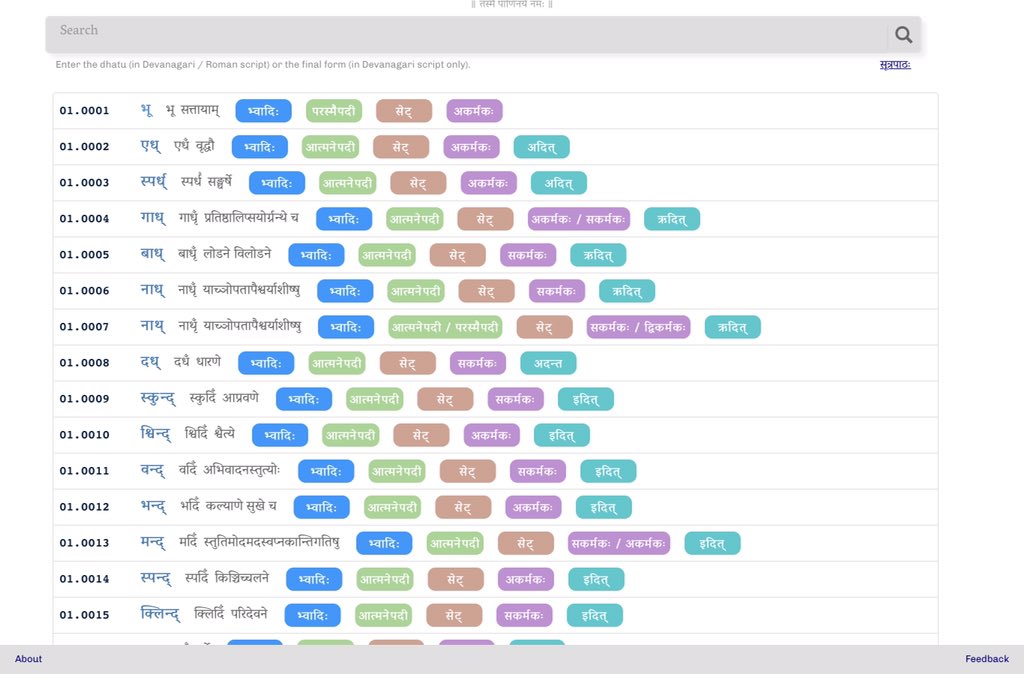
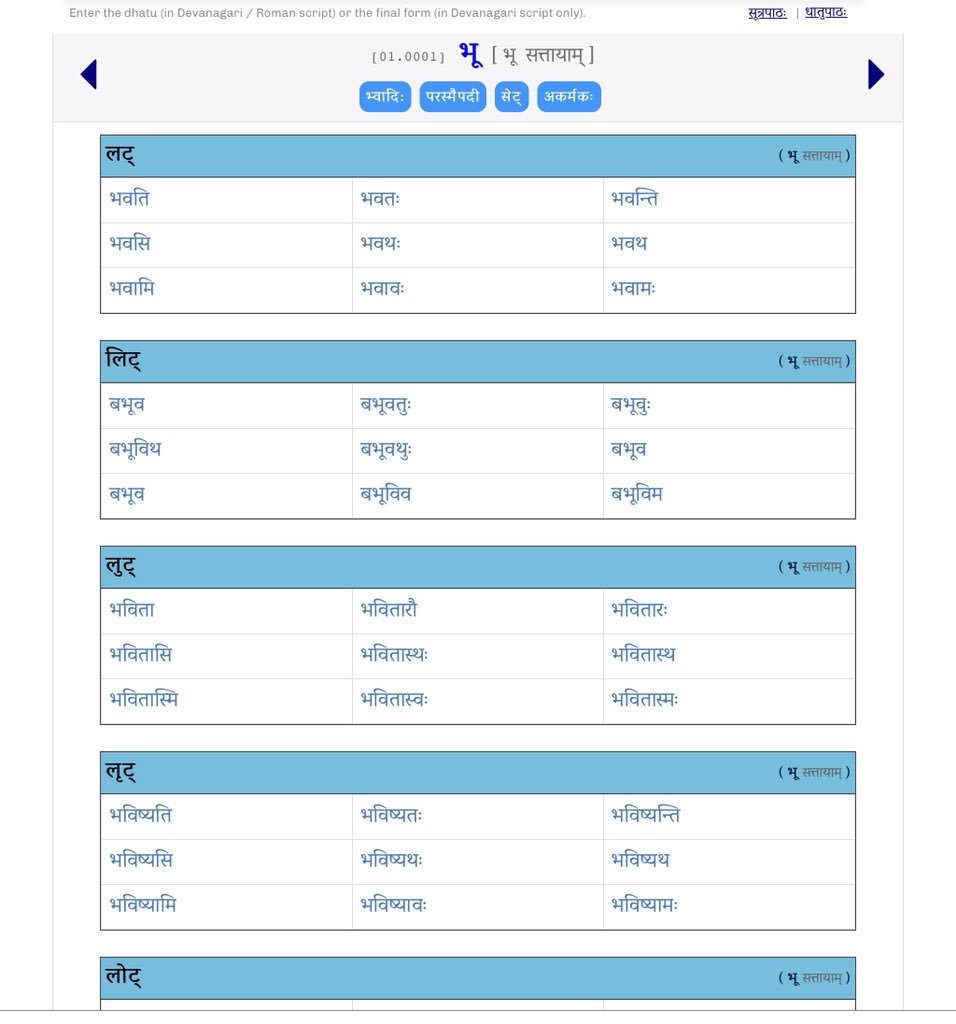
Here, instead of dhatu, you can enter any of the verb forms you know and the full list will be shown
e.g: enter गच्छति or वन्दे and you get the entire list
Caution: this site is a bit temperamental and sometimes does not show the results..
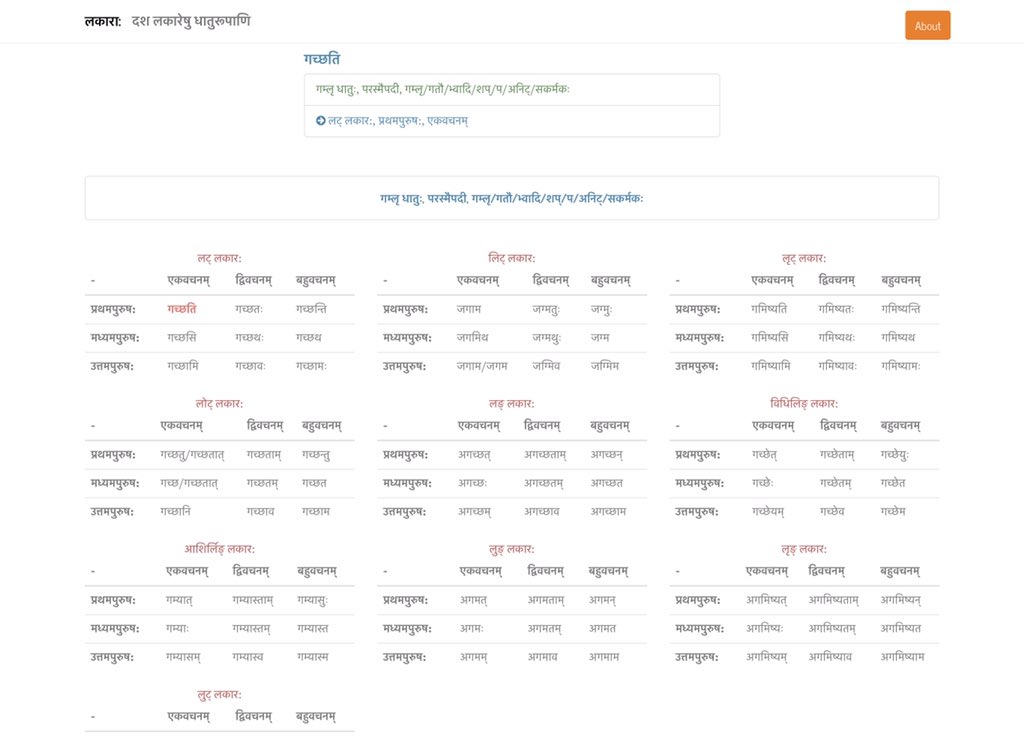
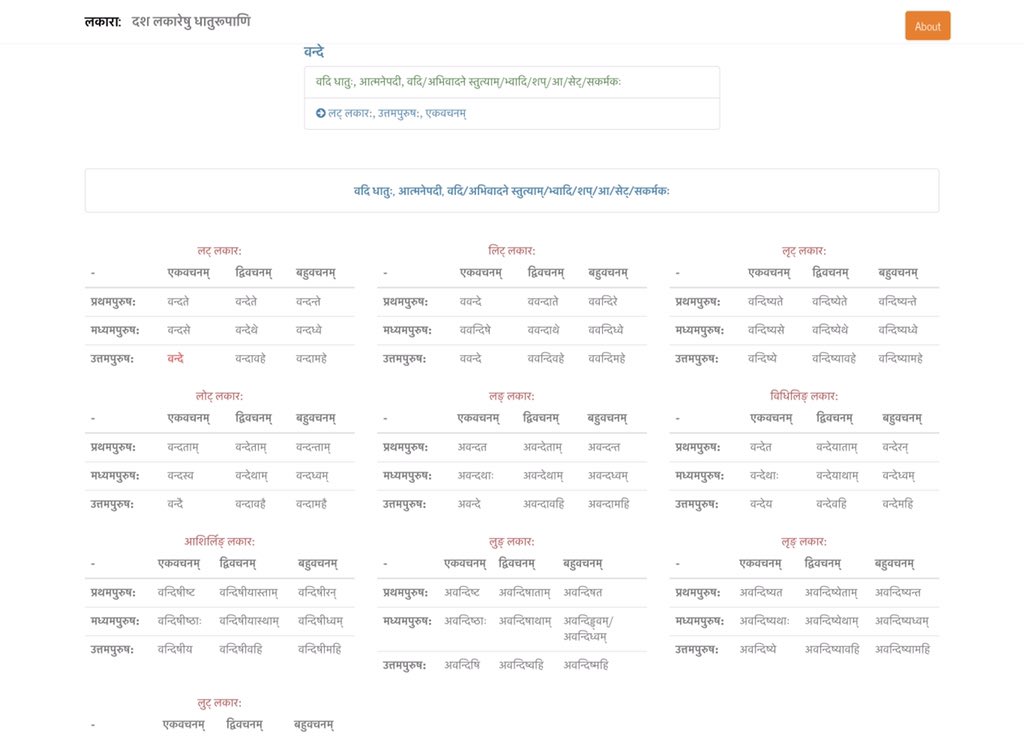
Advantage: Here the list of dhatus are shown in the alphabetical / अक्षरमाला order
Given that most beginners find it difficult to search धातवः by गणाs, here you can search the dhatu in an easy manner by going down the list as per the अक्षरमाला
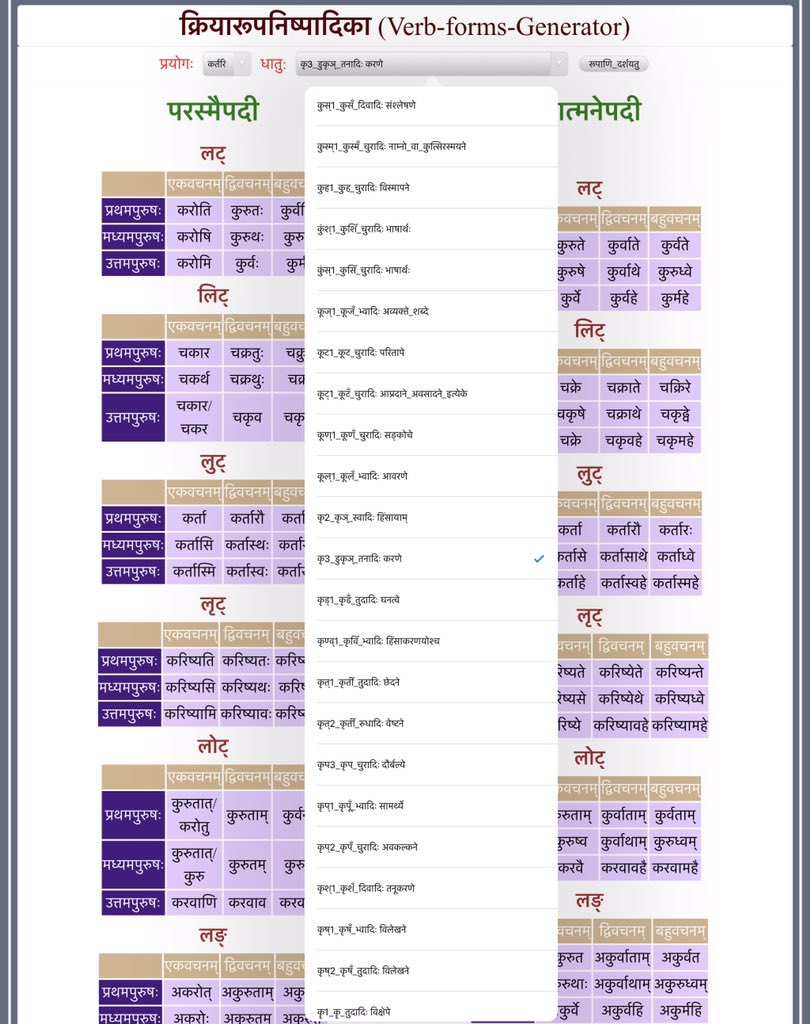
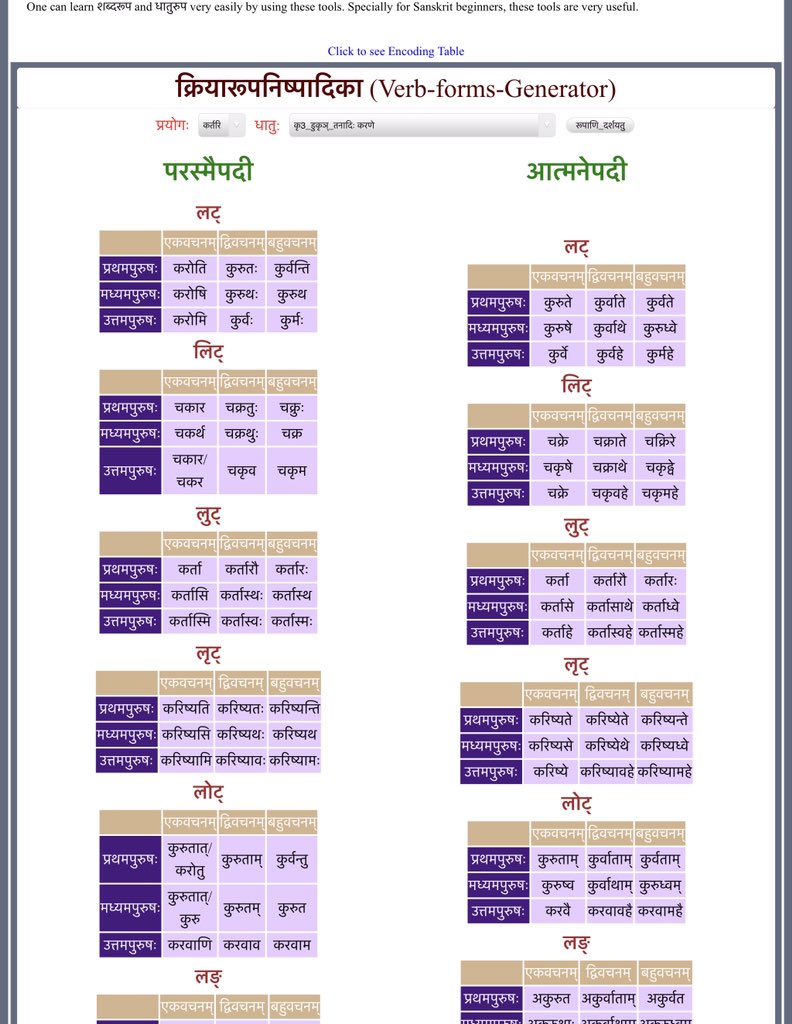
This UoHyd site has a set of great Samskritam tools incl. the ‘verb-form’ generator
Advantage: you can add उपसर्गः to the search format instead of just the dhatus. The dhatus are in alphabetical order
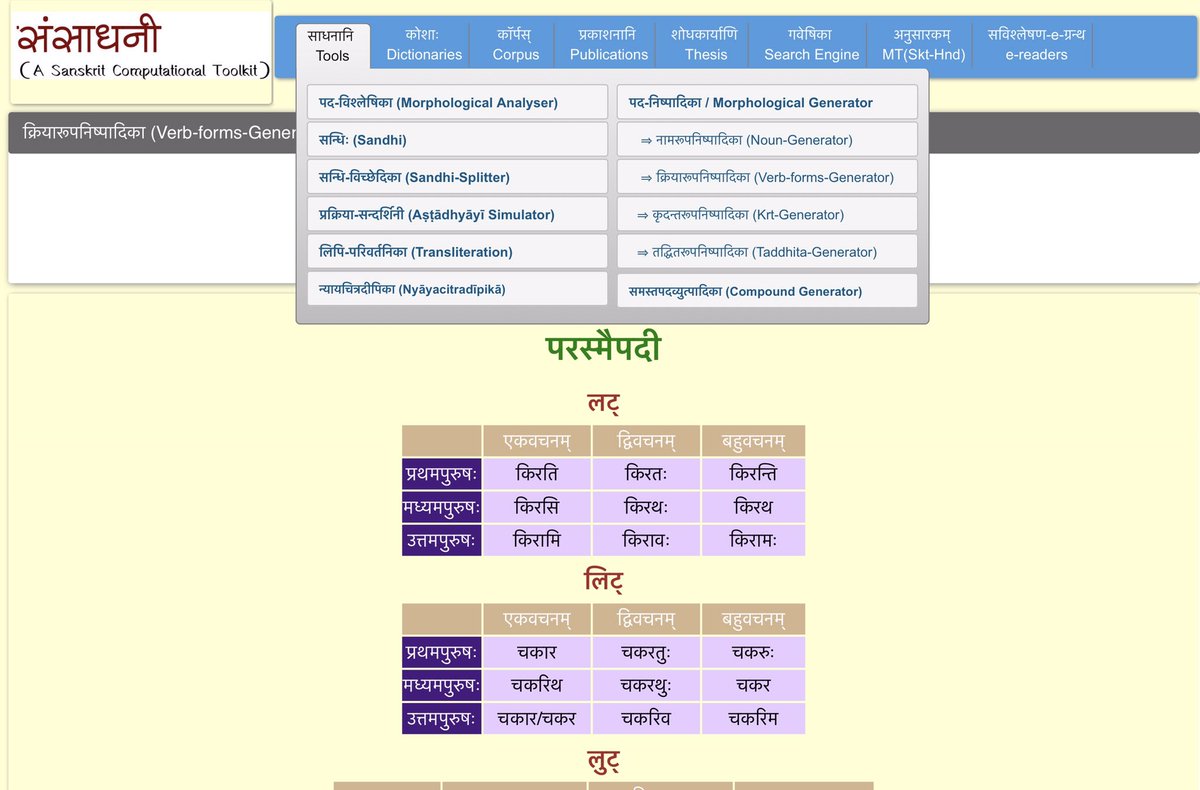
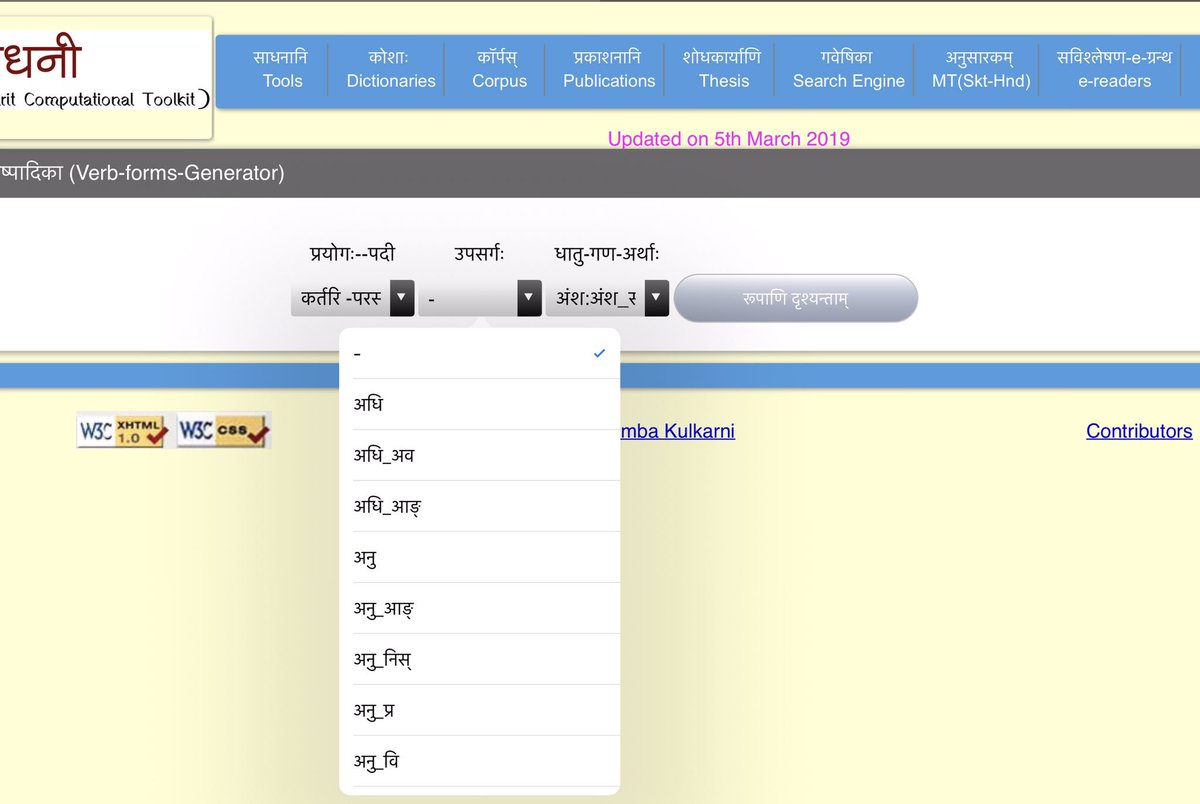
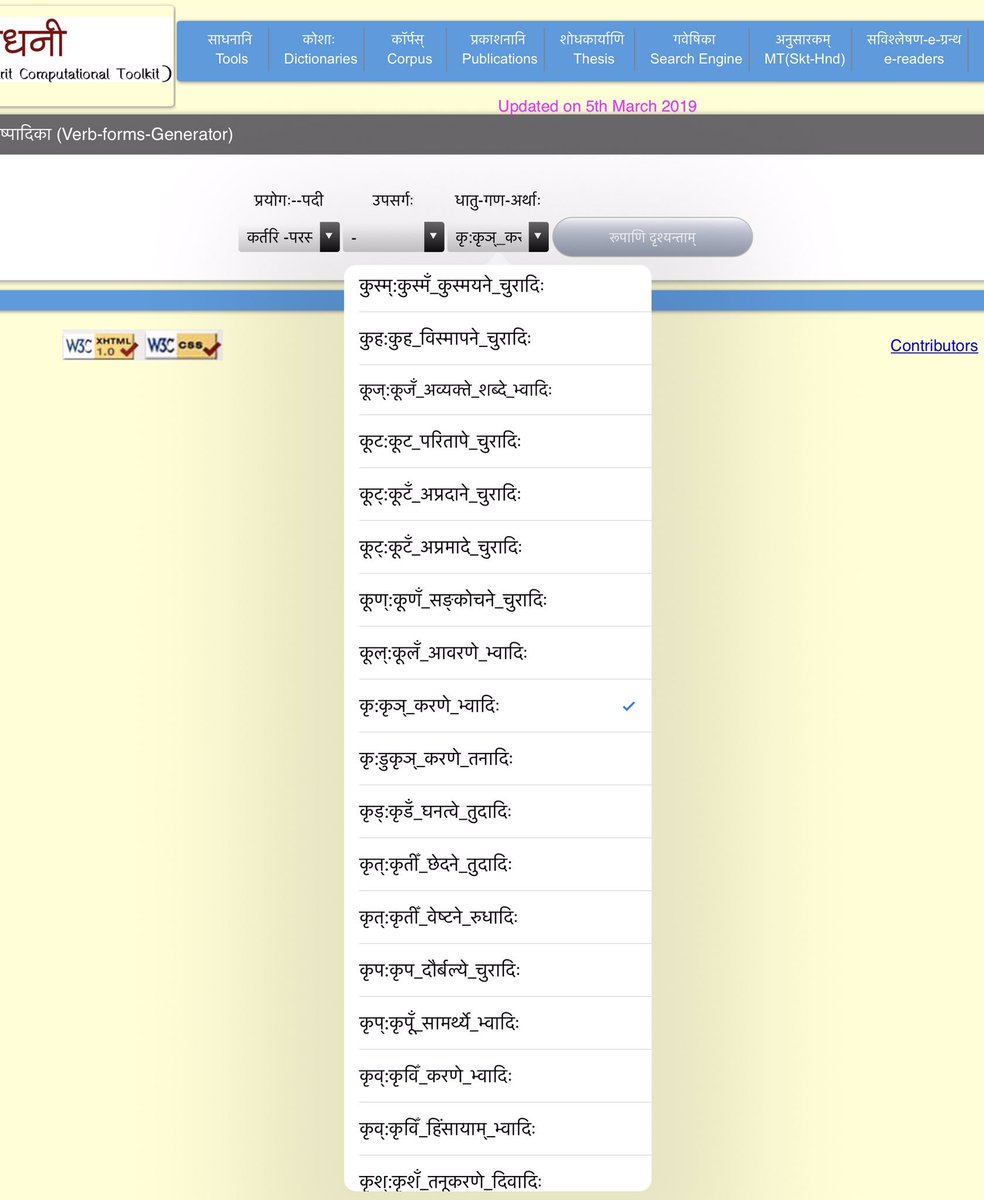
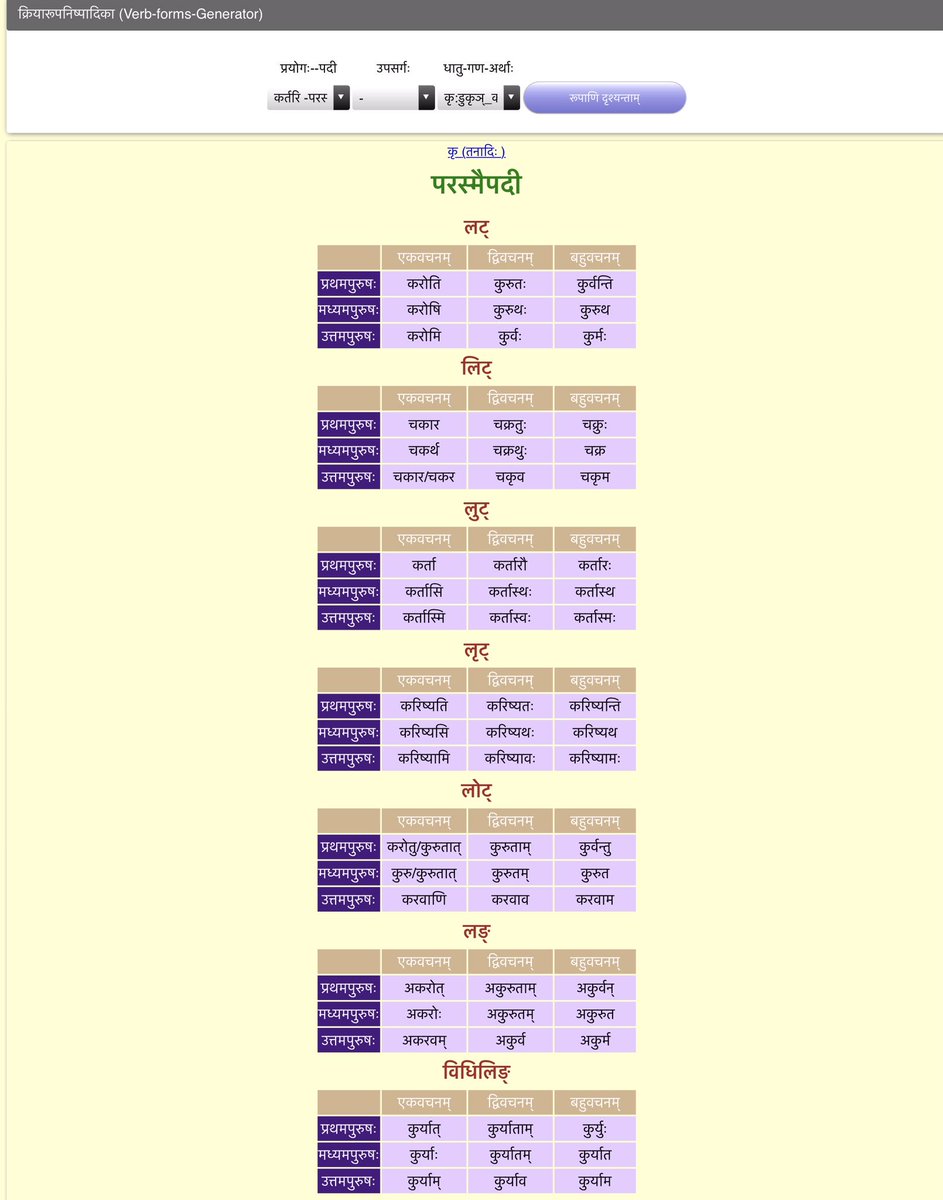
The final site to share is the तिङ्न्त generator by JNU Samskritam Dept.
Caution: dhatu list seems much lesser here compared to other sites-so you may NOT find exactly what you are looking for..
वन्दे संस्कृत मातरम् 🙏🏽
जयतु संस्कृतम् । जयतु भारतम्।
